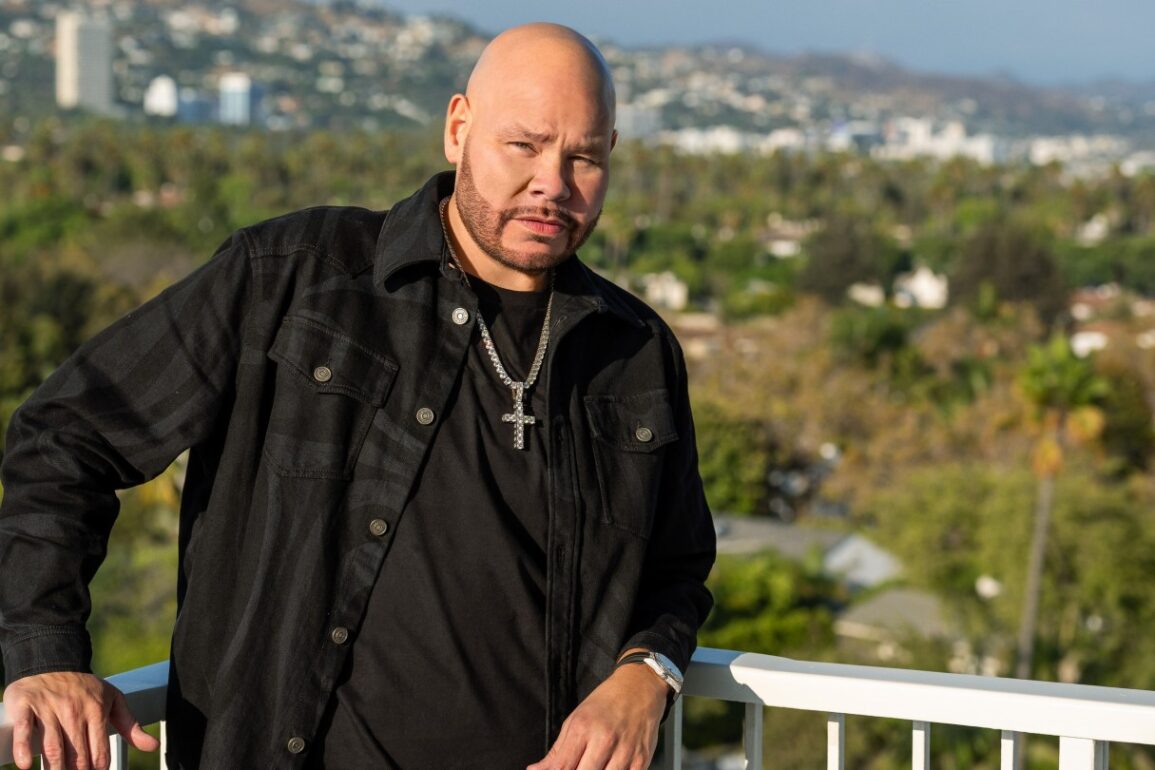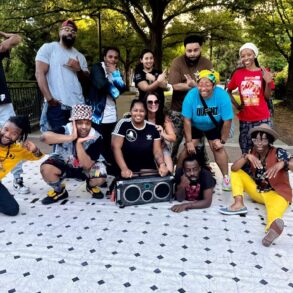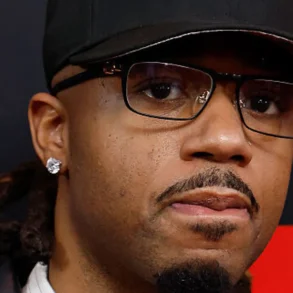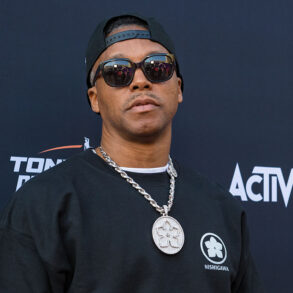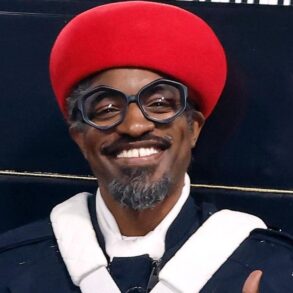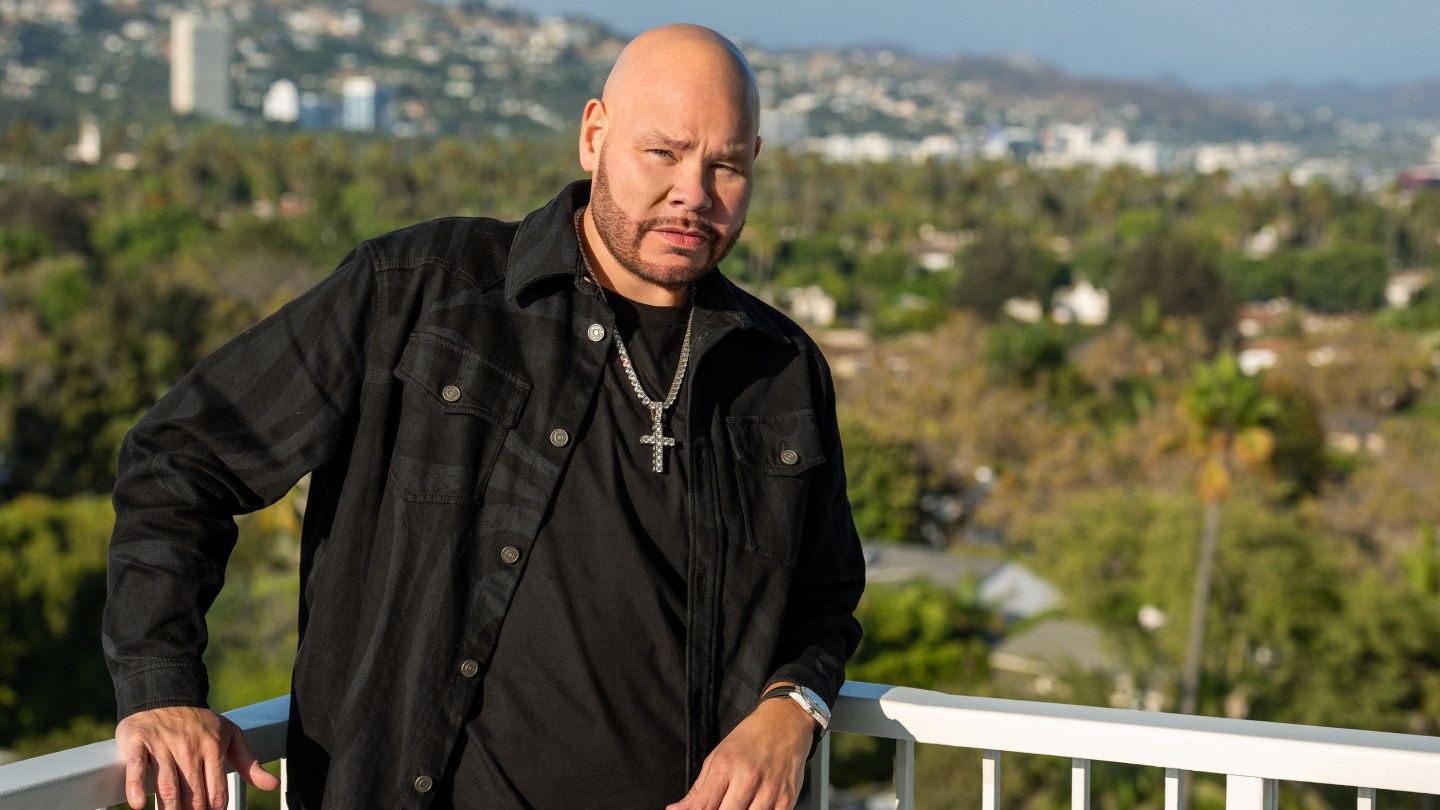
In episode one of Fat Joe Talks, the Bronx rapper and Method Man discuss the limits that were placed on them as hip-hop artists in the ‘90s and 2000s, how they couldn’t show their true personalities and always had to appear tough for the cameras. But those days are long gone, says host Fat Joe.
“Not in 2024,” he tells The Hollywood Reporter, “2024 is all about showing who you are and what your personality is.”
Positivity is the aspect of his identity Fat Joe is most interested in showing these days. It’s why he worked with Starz to launch his new interview series, which has been airing weekly since its Oct. 4 debut. So far he’s chatted with Omari Hardwick, Mary J. Blige, LL Cool J and House minority leader Hakeem Jeffries about their influence on pop culture.
“Everything you see in Fat Joe Talks is positivity and uplifting the people and giving them inspiration and motivation,” Fat Joe tells THR. “This ain’t the show where you’re going to see clickbait or drama and things of that nature.”
It’s also why he declines to comment on the current allegations against Diddy and their potential impact on the music industry and hip-hop culture when asked — an unsurprising decision when you consider his stance on the relationship between the media and entertainers.
“You got to think about it. You’re an artist, you took the time out to go do an interview with a journalist. The last thing you want to do is go sit down in front of them and they jam you up and start with clickbait and rumors about you,” he explains. “You got to think about what’s been happening to artists for years and years.”
Below, Fat Joe shares further thoughts on hip-hop journalism, presidential candidates tapping rap artists for their campaigns and rappers endorsing Trump, as well as his plans for new music and the realities of aging in the rap industry.
What made you create Fat Joe Talks and what do you want to bring to this show that’s different from other shows out there?
It started in COVID on my Instagram. My daughter told me to go live. So I went on live and talked to the people, and then the next day she told me to do the same thing. The next thing I had a TV show on Instagram. Whoever you name, Dr. [Anthony] Fauci, Mike Tyson, Floyd Mayweather, I had them all on the show and Starz contacted me and said, this could be a real TV show, and we started negotiating since then. The whole concept of Fat Joe Talks is turning the negative into a positive, like Biggie used to say. This is all about everybody’s real-life experience. It’s how they grew up, what they went through. How did they become icons? How do they shift the culture? This is all upliftment. This ain’t no shock jock. That’s the biggest difference between this show and any other show on TV, especially that’s hip-hop oriented.
A lot of former rappers are finding success with podcasts and interview shows, Joe Budden and Noreaga, for example. Why do you think that is in this moment?
It’s time that we grew up into the commentating role. If you look at basketball, you’ll see Charles Barkley, Hall of Famer Shaquille O’Neal, Kenny Smith these are all the famous players who did it, put time in the game and understand the game from every lens. So it’s only right that Cam’ron and Mase have a show, N.O.R.E has the No. 1 show, and Joe Budden has a show. These are people who lived through it. People know them and trust them, so they tune in.
Did you talk to any of them for tips?
Nah, I know what to do. I’m going for Oprah, man. That’s the only person who can give me a tip.
There’s a large conversation being had about the current state of hip-hop journalism — and entertainment journalism in general — the sentiment being that artists would rather create content with influencers and streamers than be interviewed by journalists. Is that true?
I believe it’s true. I also believe that the old guard of hip-hop journalists created a lot of conflict and might even have blood on their hands. When you talk about East Coast-West Coast, Biggie-Tupac, that thing was amplified, and they both ended up dead. And when I look at the so-called journalists that were here from day one, since Vibe and The Source and all that, still to this day when they interview people and they do podcasts themselves, it’s always a negative route. These were the people when we didn’t have social media or podcasts, they were controlling the game, and it was always a negative narrative. Back in the day, if you didn’t get shot nine times or went to jail for 10 years, they wouldn’t consider you a good rapper. It was terrible. So I kind of agree with the young boys and young girls. They’re saying get your message out there however you want and where you feel comfortable, where people ain’t out here to jam you up. That’s why I did Fat Joe Talks. So we could talk about exactly what the artist wants to talk about in a positive light. I used to go to interviews, and they’d be like, “Joe, what’s up with Rapper X?” I never even met the brother. And then next thing you know you got beef with Rapper X over a journalist who wanted to create a hype.
You recently interviewed Kamala Harris for the BET Hip Hop Awards.
Yeah, that was cool.
Were you intimidated at all?
Nah, I know her, so I wasn’t. I think the first or second time I ever hung out with Madam Vice President I was a little nervous, but I see her all the time now. I’m not taking it for granted. I know she’s the vice president, but I’ve seen her a bunch of times to the point where the butterflies wore off. Now I see her, and I go, “hey, Ms. Vice President. Heeey, owww.” We chop it up. It’s a little bit different.
Both sides of the campaign have called on hip-hop stars to help get the word out. Why do you think rappers have become so coveted throughout this election period?
Hip-hop is the voice of the people. It’s always been the truth. You got to understand this art form started by oppressed people that had nothing and, in a sense, became the CNN of the streets. Who can you trust more than a rapper? The problem is rappers, some of them are thinking about themselves individually. “Yo, I make a lot of money, let me save with Republicans with Trump, with taxes.” But they don’t realize they’re speaking for a nation of people. You think you’re saving taxes, but what about the little guy where we come from? What about women’s reproductive rights? What about Social Security and Medicare? So there’s two ways to look at it. Sometimes when I see rappers get up there like, “Yeah, Trump is the best!” [I think], yeah Trump will save you some taxes if you’re a millionaire and you’re rich.
Black men have said they feel no one caters to their specific concerns during the election cycle. Is there a similar sentiment among Latino men?
Latino men, they have a whole different set of rules. I wish we were much more aligned because if you got the Latinos and the Black people voting the same way and looking at the world the same way, then we would be the most powerful force in America. But there’s different concerns for them. A lot of Latinos, they’re into the immigration conversation. It’s different.
You began this season of Fat Joe Talks with a chat with Method Man. Fellow Wu-Tang rapper RZA recently said New York rappers have lost their creativity. Do you agree?
I haven’t seen that interview, but what I can say is there’s always hope that New York City hip-hop will come back. I’m dropping a project in another month; it’s called The World Changed On Me. I feel like I’m the last guy with a bodega and the neighborhood is gentrifying. So that’s where I’m at with hip-hop right now. I know my album doesn’t lack creativity, but RZA, he’s a legend, he’s an icon, and if he says it, it’s got some truth to it.
At the BMAC Gala in September LL Cool J talked about releasing his new album at 56 and he said he did it for a couple reasons. One, he was tired of people feeling like hip-hop culture and the music is disposable. And two, we’ve been trained to think that if an artist doesn’t put out a project in a while, their career is over. Do you identify with that feeling at all?
I see that in the aspect of creating and putting out music. Like Rob Base is performing tonight somewhere. Sugarhill Gang is performing somewhere. This world is so big and hip-hop music is so universal that your favorite artists from back in the day, they’re performing. And so in that aspect, it keeps going. I had the privilege of interviewing LL. I see what he’s saying. He’s saying, listen, back in the day when we were real, real young, we’d be like, “Yo, you’re 40 years old and rapping?” Now you get that age, what do you do? A baker doesn’t stop baking, a mechanic doesn’t stop fixing cars. That’s what you love to do. So you create music. And so I feel the same exact way in my sentiments when it comes to creating. God gave us a gift. Why stop? Why put limitations to the gift? I totally believe artists should be able to put out projects as long as they want.
Who’s your dream guest for Fat Joe Talks?
My dream guest would be Jay-Z and Beyoncé — or Obama. Not just Jay-Z, not just Beyoncé, I’m talking about Jay-Z and Beyoncé. America’s favorite couple on this show together. If not, I’ll take Obama as a close second.
What do you want to ask them?
I don’t know, it would be much more about family life: juggling careers with family life and raising kids in the middle of traveling. Beyoncé’s a whole company. Jay-Z’s a whole company. So how interesting that dynamic is to continue to work and raise kids and stay out the bs in this moment in time.
This post was originally published on this site be sure to check out more of their content.




